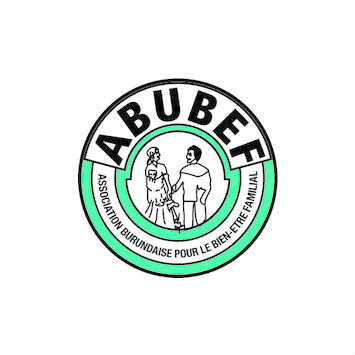

| 31 March 2016
Association Burundaise pour le Bien-Etre Familial
Established in 1991, the Association Burundaise pour le Bien-Etre Familial's (ABUBEF) original mission was to deliver family planning. Over 20 years later, the organization operates a large number of services across a broad range of sexual and reproductive health and rights (SRHR) needs, including prevention and management of HIV and AIDS, youth-friendly counselling and education, pre-marital counselling, and antenatal and post-natal care. It accomplished this through 18 service points, including static and mobile clinics, and community-based services. An estimated 80% of its clients are poor, marginalized, socially excluded and/or under-served. Particular beneficiaries of ABUBEF’s services include young people living with HIV and AIDS, internally displaced persons, women of child-bearing age, sex workers, drug users and street children. ABUBEF delivers its service through a dedicated team which includes 81 staff, nearly 500 volunteers, 75 peer educators and well over 1,000 community-based distributors (CBDs). Their commitment to ABUBEF is crucial to the nation’s current and future sexual and reproductive health. ABUBEF’s partners include donors such as UNFPA, FHI, CARE and CNLS, and it works together with organizations including Réseau National des Jeunes Engagés pour la Lutte Contre le Sida (RENAJES) and the Association pour la Promotion de la Fille Burundaise (APFB).

| 31 March 2016
Family Planning Association of Nepal
Established in 1959. the Family Planning Association of Nepal (FPAN) is Nepal's first national family planning service delivery and advocacy organization. It is a major collaborator of the Government of Nepal's national sexual and reproductive health (SRH) program, contributing a greater percentage of all SRH services in Nepal annually. FPAN serves Nepalese people in 44 districts, focusing on the poor, marginalized, socially excluded and underserved (PMSEU) populations, which include female sex workers, people living with HIV (PLHIV), LGBTIQ people, injecting drug users, men who have sex with men (MSM), migrant workers, people with disabilities (PWD), survivors of gender-based violence (GBV), urban slum dweller and people affected by disaster and crisis. The mission of FPAN is to "champion a volunteer movement for increased provision of SRHR to all, particularly to those most at risk, marginalized, and under-served". The planned outcomes set by FPAN for the strategic planning period (2016-2022) include: Nepal Government respects, protects and fulfil sexual and reproductive rights and gender equality; Nepalese people empowered to act freely on their sexual and reproductive health and rights; a high quality integrated sexual and reproductive health services delivered; and a high performing, accountable and strong FPAN. The success of FPAN is due to its extensive and diverse network of service delivery points, as well as its expertly trained staff and volunteers who provide services in areas where they would otherwise be unavailable. FPAN provides an Integrated Package of Essential Services (IPES), which includes sexuality counselling, contraception, including emergency contraception, safe abortion, STIS/RTIs, HIV & AIDS, obstetrics, gynecological and sexual & gender-based violence services. These services are provided across 974 service delivery points (including 270 clinical SDPs, 22 family health clinics, 56 community health clinics, 75 associate clinics, 117 mobile teams, and 794 non-clinical service delivery points). FPAN provides approximately four million SRH services each year across its service delivery points, with family planning accounting for 40%, STIs/RTIs for 14%, gynaecological services for 12%, HIV services for 10%, and other services accounting for the remaining 24%. FPAN has eight clinical training centres that are connected to its family health clinics, which provide full range of family planning and reproductive health services. The training centres are accredited by the National Health Training Centre, (MoHP). These centres provide a variety of family planning and sexual and reproductive health training to health care providers from FPAN, government, and non-governmental organizations (NGO) health facilities.







